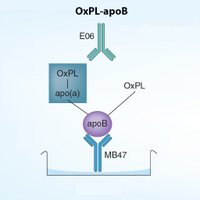
Sam Tsimikas, MD
@lpa_doc
Professor Cardiology - UC San Diego. @UCSDHealth, @stsimikas, @OxPL_apoB. Educational forum on Lp(a) and related areas-unable to give personal advice on twitter
ID: 790971021830467584
25-10-2016 17:39:21
4,4K Tweet
13,13K Takipçi
95 Takip Edilen








I am at ESC. Lots of interest in Lp(a). I will summarize meeting on Lp(a) topics when it's over. Hoping our Brazilian friends get X back Sergio Kaiser MD, PhD, FACC, FESC 🇧🇷🇮🇱🇷🇴🇺🇦


Just when you thought stents could not get any better, this study using a stent of creative and unique design suggests a significant advance. Congrats to David Erlinge for leading the study.

The world of OxPL Sam Tsimikas has expanded to many areas beyond Lp(a). Inhibiting OxPL with our E06 antibody discovered UC San Diego UC San Diego Cardiology in various models improves aortic stenosis, ischemia/reperfusion injury, MASH, metabolic disorders CNS DZ, bone metabolism,




For those interested in research studies, OxPL-apoB and OxPL-apo(a) are now be available at Medpace. We will continue doing the tests UC San Diego for academic collaborations. For clinical care, OxPL-apoB is available BostonHeartDX






